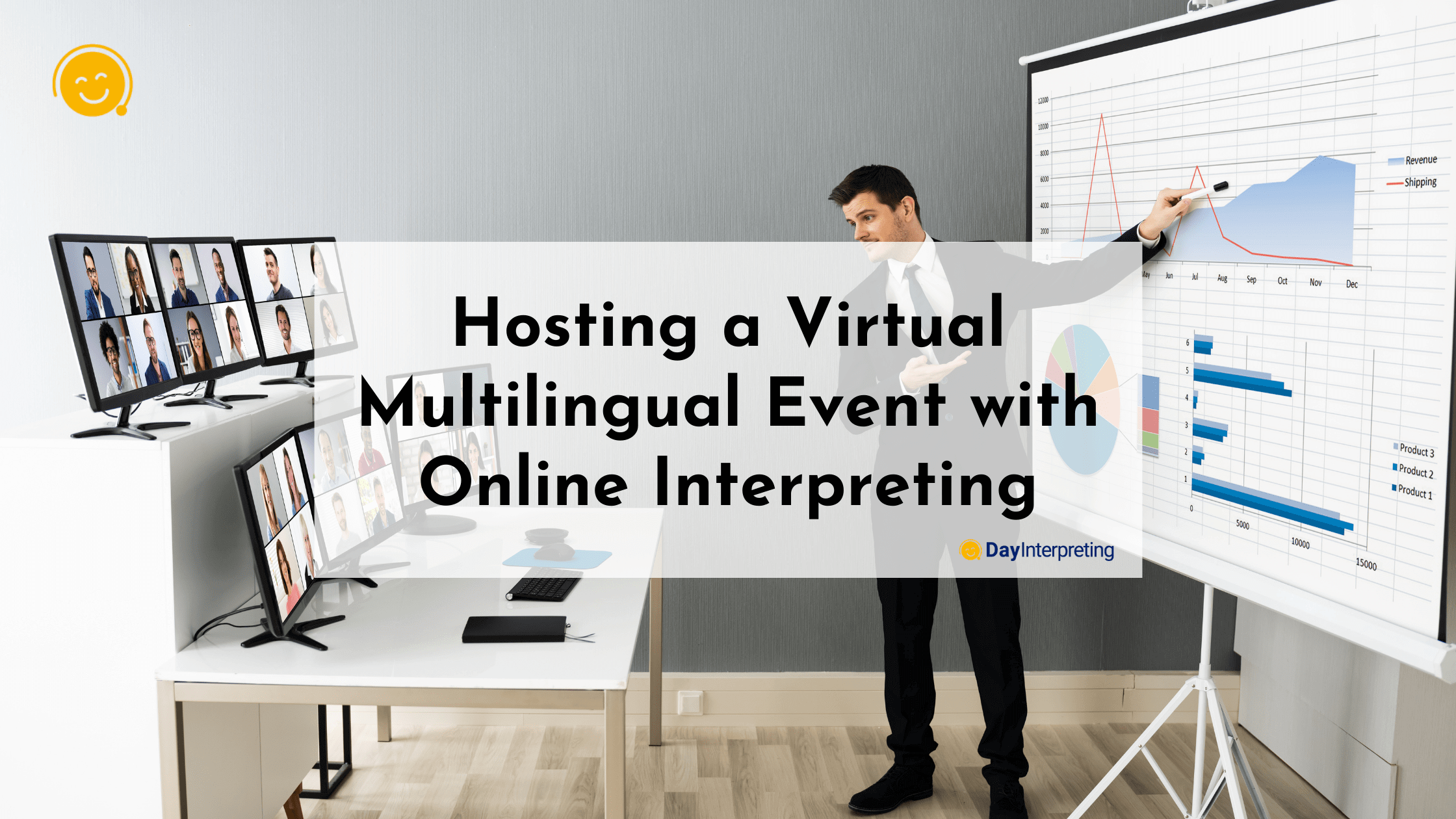Event planning is rapidly evolving, and after learning to work around the barriers created by the COVID-19 pandemic, the world is finally starting to embrace the future of events. Everything is getting more sophisticated, and there’s a higher demand for the virtual multilingual event model than ever before. Thanks to technological advances, events that used to focus solely on the local audience can now host international participants, and by doing this, they’re more accessible than ever.
The problem, however, comes in with facilitating international and multilingual audiences. With attendees joining conferences from every corner of the world, hybrid events need to cater to multiple language needs.
What is Online Interpreting, and When Can It Be Used?
Online interpreting is becoming outdated and unsuited to our growing digital economy. In an age where global crisis accelerates the process towards a fully digital world, requiring on-site interpreters and physical conferences are becoming a thing of the past.
Web-enabled; online interpreting allows a host to assign interpreters to a separate audio channel for the target language. Attendees can then select the corresponding audio channel to hear the interpreter in their language of choice. You can use online interpreting for a variety of scenarios, including:
Virtual Multilingual Event Webinars
Think Skype with the added perks of professional conference interpreters in the mix. You can also record the event and its interpretation so it can be replayed afterward. For smaller events like financial updates and shareholder meetings, multilingual webinars tend to work very well.
Hybrid Meetings
Hybrid meetings are the next best thing and incorporate the use of live interpreting and virtual meetings. Half of your participants can attend the event in person while the others participate from remote locations using conferencing and webinar software for your company’s needs. This also enables the speakers to deliver their presentations to an audience that has gathered elsewhere.
What Are the Benefits of a Virtual Multilingual Event?
Conferences and live events are the lifeblood of the business world. While it might take some time for things to get back to normal (if they ever do), the best we can do in the meantime is to leverage the power of hybrid events that allow us to host in-person events that also facilitate remote participation.
- The benefits of virtual, multilingual events include:
- Reviving brand awareness
- Refreshing industry visibility
- B2B networking opportunities
- Lead generation
Do You Really Need Live Interpreting?
Nelson Mandela said, “When you talk to someone in a language he understands, that goes to his head. If you talk to him in his language, that goes to his heart.” A Common Sense Advisory study showed that 72% of people are more inclined to buy a product if the marketing material is delivered in their native language. The study also stated that 56% of people say that obtaining information in their native language is more important than price.
So, in short, yes, you do need interpreting if you want to captivate your audience and expand your reach.
Offering your event in different languages can boost the attendee experience and significantly benefit your brand. Need help with planning a multilingual conference or event? Get in touch with Day Interpreting today to learn more about our service offerings and how we can help you bridge the language gap!





0 Comments